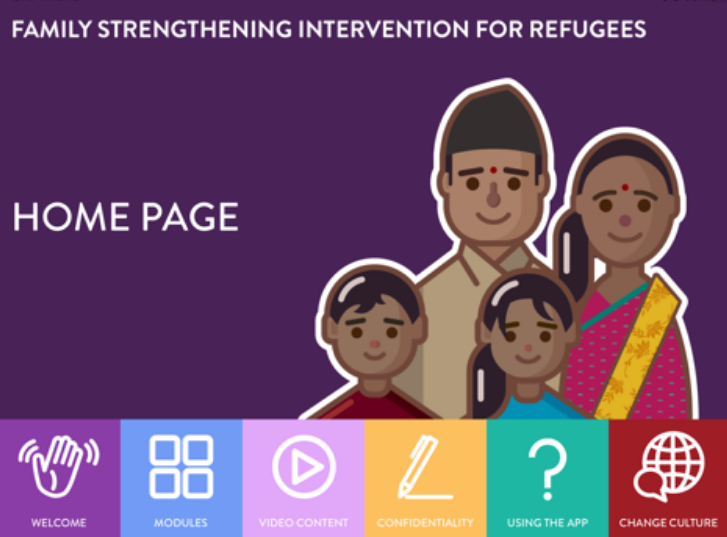Digital Mental Health Innovations to Support Scaling Out a Family Strengthening Intervention for Afghan Refugee Families
FY23 SI-GECS Type 2
Abstract

As of Spring 2022, there are an estimated 65,000 Afghan evacuees who have been evacuated to the United States and many more are expected to arrive. Resettling refugee populations are characterized by a range of health disparities, most notably mental health disparities given high trauma exposure.- Family Strengthening Intervention for Refugees (FSI-R) is an evidence-based program to promote mental health in refugee communities that was develop for delivery “by refugees for refugees.” To respond to the high volume and heightened service needs of resettling Afghan populations in the U.S., our team proposes to adapt a digital tool to facilitate home visitor’s delivery of FSI-R in Afghan refugee communities at scale across the U.S. Our project has three aims: 1.) To work with faculty, students, and staff at BCSSW, Computer Science, and Engineering to adapt a digital FSI-R application to the Afghan culture, technical literacy, and context of Afghan families using Community-Based Participatory Research (CBPR) and human-centered design to co-develop the application with Afghan refugees in local communities in New England; 2.) Pilot-test the prototype application among a sample of Afghan trained home visitors working with refugee families to assess ownership, feasibility, acceptability, and initial impact of the intervention in improving family functioning and promoting child mental health and well-being; and 3.) Develop best practices for adaptation of mHealth tools across cultural contexts using human-centered design techniques. The pilot-tested application will help to respond to the urgent need for community mental health services among the Afghan refugee population by supporting rapid scale-up of FSI-R. The prototype will be the first step toward seeking additional funding to improve the quality of the application with visually sophisticated video and audio to create a more engaging user experience for better service delivery.
Presentations
- ‘Innovating Parenting Interventions in the Digital Age: Pathways to Scale Using the Family Strengthening Intervention for Refugees.’ At the International Congress on Evidence-Based Parenting Support (ICEPS).
Additional Grants
- Academic Technology Advisory Board ATIG grant ($37,000)
Students Trained
- 2 Undergraduate Students
- 1 Graduate Student
Additional Accomplishments
- Developed rigorous best practices for co-creation of a flexible multicultural mobile-health (mHealth) tool to support refugee families and children and shared with interdisciplinary mHealth researchers, designers, and developers.
- Project manager-led community advisory board meetings on the digital tool
- Through SIGECS funded work, our team was able to implement the ATIG pilot, Enhancing the Implementation of Evidence-Based Mental Health Interventions Through the Use of Technology: Piloting a Digital App. The project, stemming from FY23 SIGECS grant, piloted a small-scale study of the digital Family Strengthening Intervention for Refugees (FSI-R) tool through innovative and multidisciplinary work that was developed from the SIGECS grant with BC faculty and students. This culturally adaptable and responsive digital tool was tested for implementation effectiveness of the FSI-R intervention with three Afghan families and was delivered by a skilled Afghan home visitor experienced in standard delivery methods. Early analysis of the implementation of the digital tool is strong and shows the app has strong feasibility and usability amongst interventionists. We are currently doing further analysis and research of the small-scale pilot project which finished in June of 2024. Feedback from the interventionist and clinical supervisors has laid the groundwork for further refinement and development of the digital tool.

